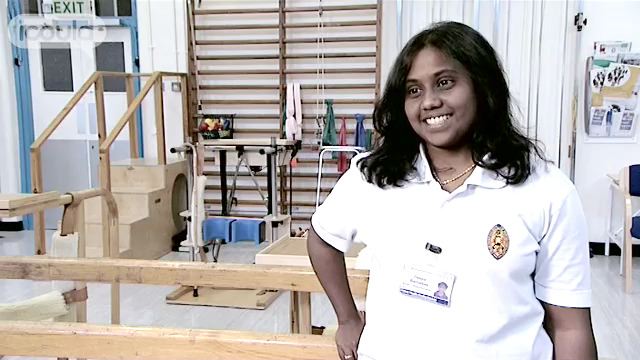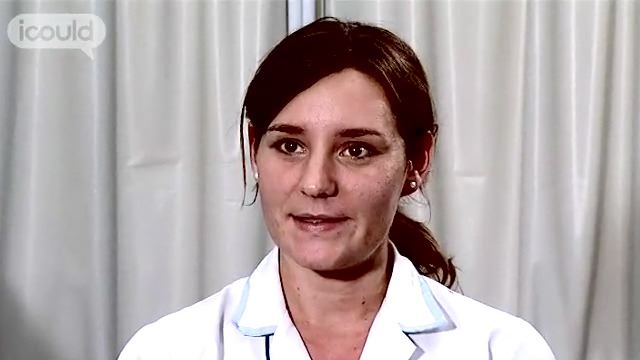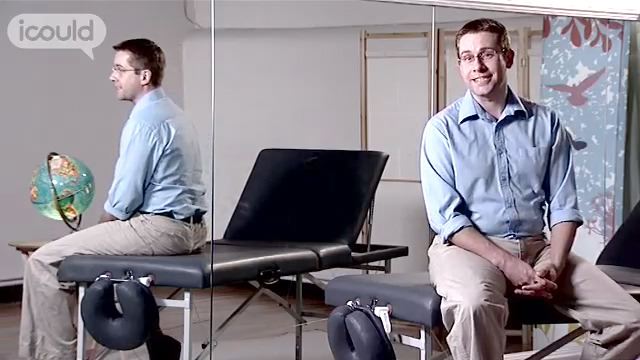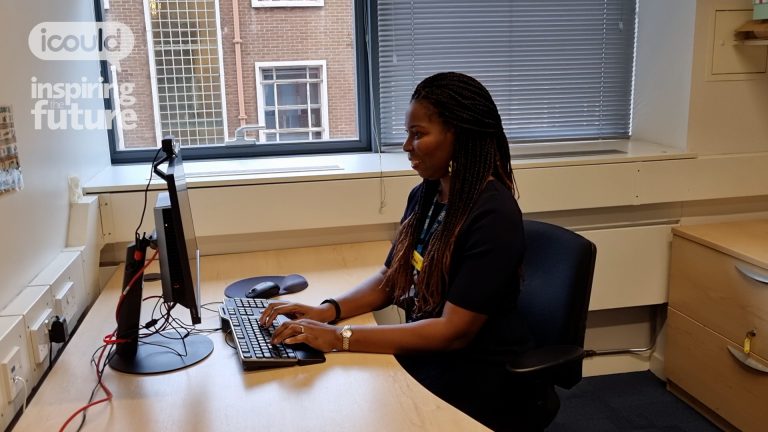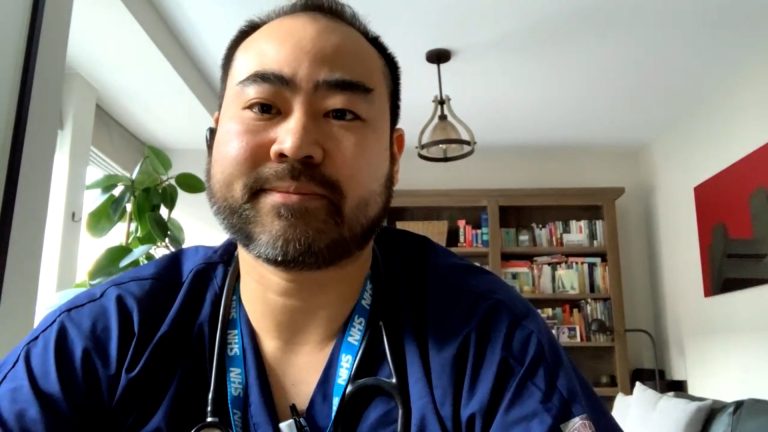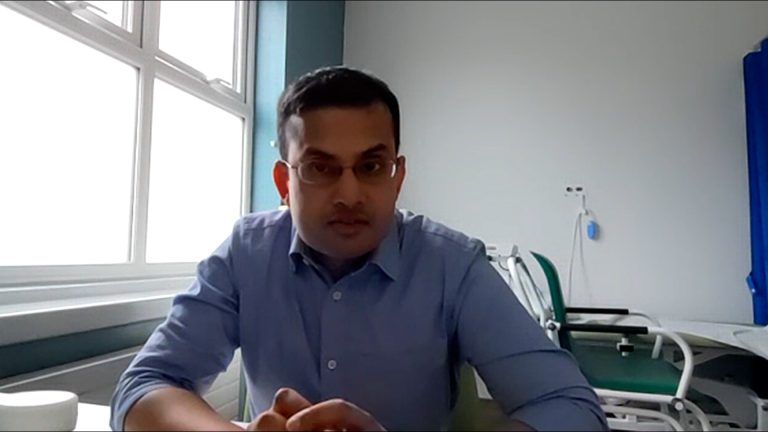Physiotherapist
Addenbrookes Hospital
Megan F
00:00:01 Basically I work with patients who’ve suffered some kind of injury to their neurological system, so whether that’s from their head or from their spine, and I work to help get them back to a level of functioning that’s as good as we can hope for with the injury that they’ve sustained. Getting people able to use their arms again, to help wash themselves, dress themselves, eat, drink, all those activities that we take for granted every day.
00:00:29 When I was about fourteen, fifteen, I knew I wanted to do physio, and I did some work experience in South Africa in a hospital there. I just remember seeing the Physio that I was working with doing a treatment session with a patient who’d had a head injury, and just being completely awe-inspired by what she was doing, and just thinking yeah, that’s definitely what I want to do. It was just one patient, one day, shaped my whole career. I think I’ve always worked really hard, I was definitely very lucky that I knew what I wanted to do, but I was always very very driven, and worked hard, and never expected things to just happen for me. I think you really have to go after what you want. I mean luckily for me the things I did like, were the things that I really needed to get into a Physio degree. So all the Sciences I really enjoyed. Psychology I did as well, which I really enjoyed.
00:01:23 Well as a Physio in the NHS, when you first qualify you work in a variety of different areas, and you move round every few months so that you get quite a wide experience of the different areas that there are. And some of the other areas of Physio I never felt as keen on myself, because I didn’t feel that I was making as big an impact as I feel I make with the – with this client group. It’s really interactive, so you’re working with people all the time. It’s really supportive, you learn on the job. It’s a really social career, very interactive, and hugely rewarding. I wouldn’t – I wouldn’t choose to do anything else. I love – love working with these patients.
00:02:06 I think I just always really wanted to work with people who – these people who’ve had their whole lives turned upside down by a – either an accident of some description or a serious illness. Seeing how much of a difference you make to their ability to move it’s – it’s just an amazing feeling. The other day I had a patient who’d been in hospital since October last year, who hadn’t walked at all, not even a single step, in all that time, and then he walked last week. And the emotion was just incredible. It makes your – makes your whole week when you have a situation like that and you make such a difference to their lives.
00:02:45 ENDS
Whilst on work experience in Africa, aged 15, Megan saw a physiotherapist treat a patient who’d had a head injury; it was a turning point in her life. Now, as a physiotherapist herself at Addenbroookes hospital, Megan is making a real difference to peoples’ lives. “The other day I had a patient who’d been in hospital since October last year, who hadn’t walked at all, not even a single step, and then he walked last week. And the emotion was just incredible.”
More information about Physiotherapists
The UK average salary is £29,813
There are 37.5 hours in the average working week
The UK workforce is 47% female and 53% male
Future employment
- Examines medical reports and assesses patient to determine the condition of muscles, nerves or joints in need of treatment;
- Writes up patients’ case notes and reports, maintains their records and manages caseload;
- Plans and undertakes therapy to improve circulation, restore joint mobility, strengthen muscles and reduce pain;
- Explains treatment to and instructs patient in posture and other exercises and adapts treatment as necessary;
- Offers advice and education on how to avoid injury and promote patient’s future health and well-being;
- Supervises physiotherapy assistants;
- Monitors patient’s progress and liaises with others concerned with the treatment and rehabilitation of patient, and refers patients requiring other specific medical attention.
